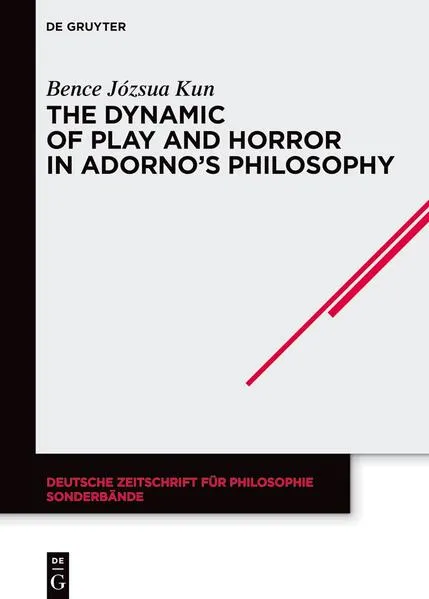
- Publikationen ca: 3
- Gefolgt von 1 Nutzern
- Fragen & Antworten
Kun, Bence Józsua

The Dynamic of Play and Horror in Adorno's Philosophy
Long before Wittgenstein drew attention to its complexities, the concept of play had captured the interest of theorists for millennia. How do games contribute to our knowledge of the world? Wherein lies their universal appeal? Play is usually associated with a certain blitheness and buoyancy - could it nevertheless be argued that playfulness is not quite as innocent as it might seem? Bence Kun draws on Adorno's writings to explore the relation between philosophical play (understood here as imaginative thought as well as experimental expression) and an experience of dread Adorno links to children's first encounter with death.

The Dynamic of Play and Horror in Adorno's Philosophy
Long before Wittgenstein drew attention to its complexities, the concept of play had captured the interest of theorists for millennia. How do games contribute to our knowledge of the world? Wherein lies their universal appeal? Play is usually associated with a certain blitheness and buoyancy - could it nevertheless be argued that playfulness is not quite as innocent as it might seem? Bence Kun draws on Adorno's writings to explore the relation between philosophical play (understood here as imaginative thought as well as experimental expression) and an experience of dread Adorno links to children's first encounter with death.

The Dynamic of Play and Horror in Adorno's Philosophy
Long before Wittgenstein drew attention to its complexities, the concept of play had captured the interest of theorists for millennia. How do games contribute to our knowledge of the world? Wherein lies their universal appeal? Play is usually associated with a certain blitheness and buoyancy - could it nevertheless be argued that playfulness is not quite as innocent as it might seem? Bence Kun draws on Adorno's writings to explore the relation between philosophical play (understood here as imaginative thought as well as experimental expression) and an experience of dread Adorno links to children's first encounter with death.